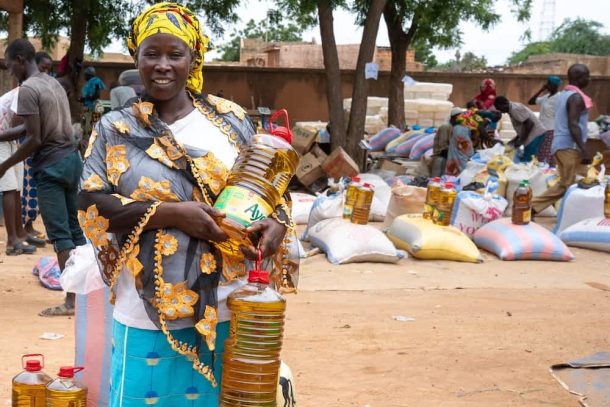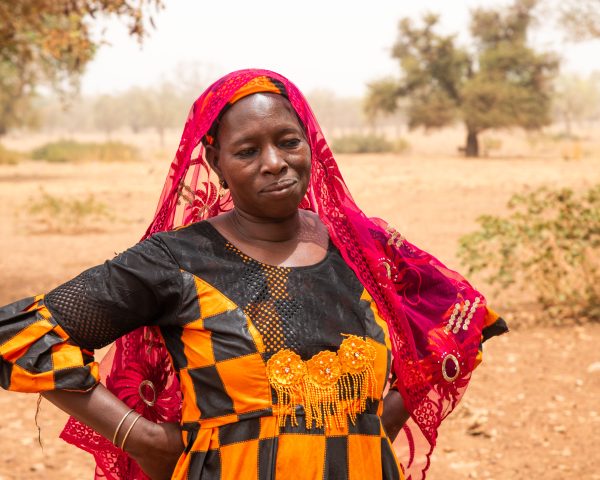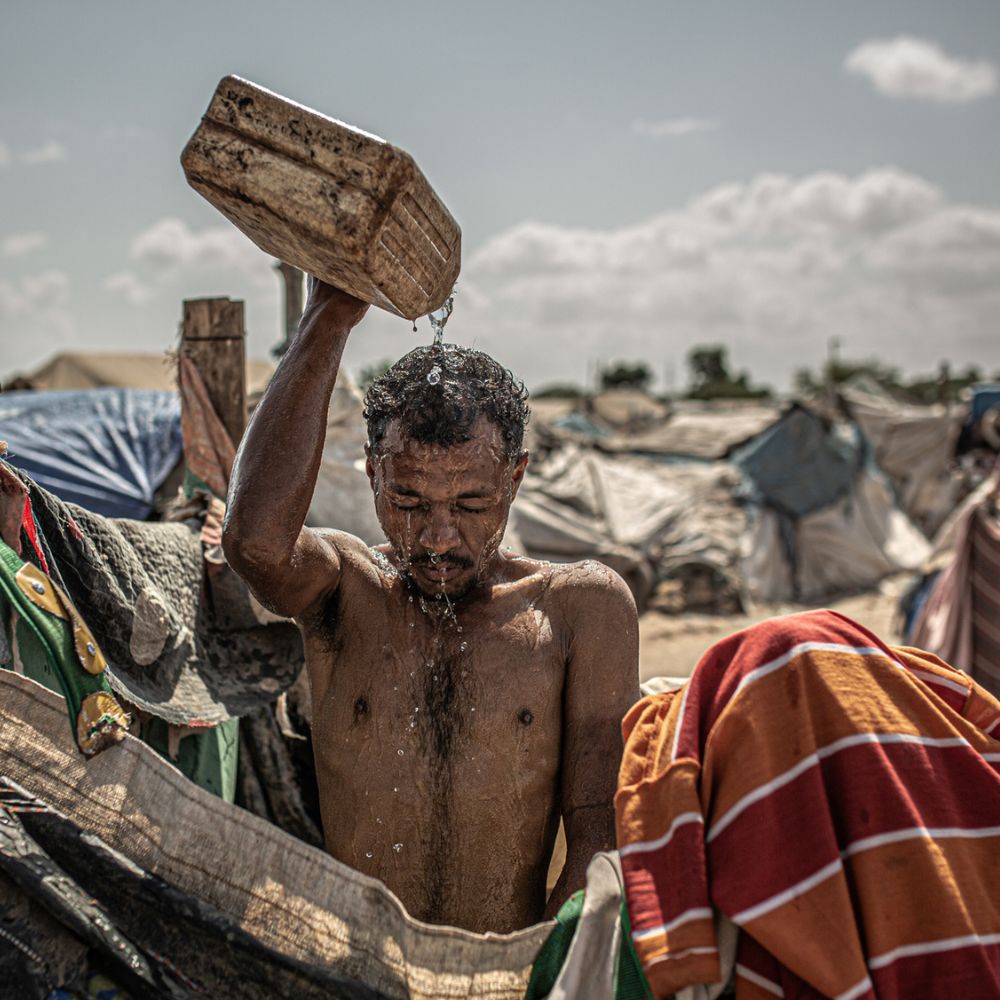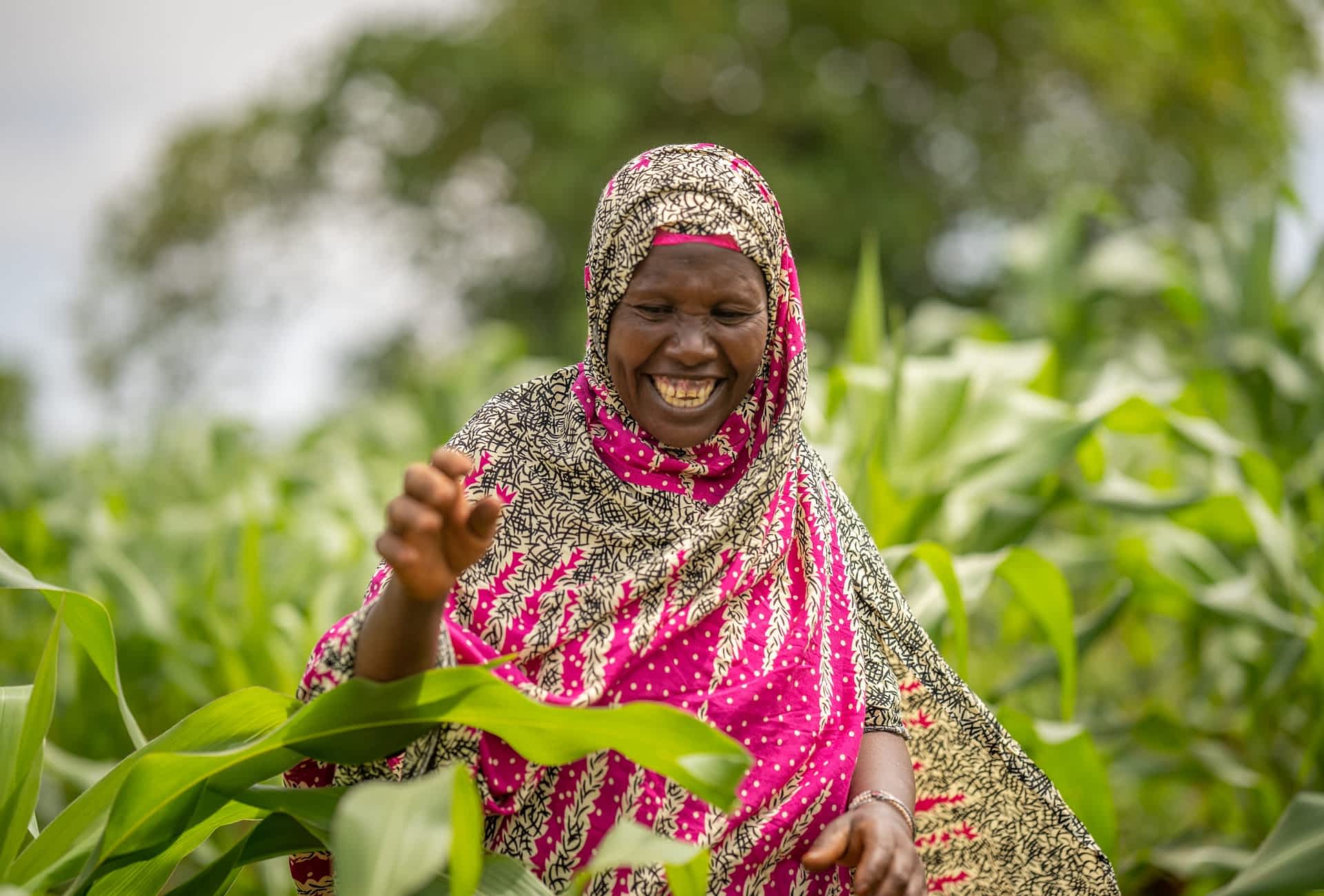Our work in Burkina Faso
We focus our efforts on three key areas: Strengthening democracy and active citizenship, advancing climate adaptation, and providing humanitarian support.

Photo: Abdoul Latif Keita / Oxfam
80% of internally displaced
have gotten their basic needs covered by Oxfam
800 young people
have been trained in agro-ecological techniques and practices
340 women and young people
have been trained in social cohesion and conflict resolution
12.000 students
are receiving quality education with a focus on gender equality
Burkina Faso means ‘Our treasured, free and honest motherland’ but these lyrics are challenged as the 20 million inhabitants are facing turbulent times.
Increased insurgency and conflicts, weak governance and prolonged droughts have since 2015 dragged the country into a deepening economic, political, and environmental crisis and triggered two military coups. More than half of the population is under 18 years old, and the country is one of the poorest in the world.
That is why we work to reduce poverty and inequality while fighting to promote women’s rights.
1.8 million Burkinabes are internally displaced, 2000 people have been killed, the military controls 60 percent of the country and 3300 schools are closed. That is why the country urgently needs support.
Comrades, there is no true social revolution without the liberation of women. May my eyes never see and my feet never take me to a society where half the people are held in silence. I hear the roar of women’s silence. I sense the rumble of their storm and feel the fury of their revolt.
Thomas Sankara
First president of Burkina Faso, murdered in 1987
Young people and women are the future of the nation. At Oxfam, we strive to ensure their active participation in advocating for the country’s development, both locally and nationally, and we support their efforts in fighting for a more equal and just society. This is the way to reduce the enormous inequality between rich and poor, while ordinary people will have access to health and education.
What does Oxfam Denmark do?
We battle the catastrophic consequences of climate change such as drought and flooding by ensuring the population’s access to housing, food, education and jobs, as well as training people in alternative techniques within sustainable agriculture.
We also distribute emergency aid with a long-term development focus in areas suffering from conflict and climate refugees. As part of the emergency aid, we train local leaders and young men and women to be change-makers, to contribute to dialogue and peace building between warring parties and to rebuild the trust and cooperation with local authorities that is needed to ensure a stable development of the country.
Our goals in Burkina Faso
- To strengthen the economic, social and political rights of women, young people and internally displaced persons.
- To Improve public education systems, especially for girls, young people and women, increasing active citizenship and gender-transformative education incl. enrollment and retention of girls and child workers from mining communities.
- To strengthen 10 ‘Municipal Citizen Committees’ to proactively change local development policies and budgets with demands for access to information, transparency and increased financing for quality social services.
- To influence the distribution of public finances and mining revenues to be fair and transparent and invested in civil society needs
Help us give Burkina Faso’s youth a life of dignity
The unstable situation is robbing generations of young people of their future and fuelling an already burning conflict.
That is why we work to empower the country’s youth and women to become active citizens, enabling them to drive the change they so desperately need. This includes educating them on the structural problems in their communities and equipping them to advocate for their rights.
You can help turn the tragedy in Burkina Faso into a positive and sustainable future for its young people.

Support our fight for an equal future
Oxfam Denmark provides assistance wherever it is needed across the globe. You can support our activities in countries such as Burkina Faso by becoming a regular donor or making a one-time contribution.
Facts about Burkina Faso
- In 2014, the president who had been in power for 27 years was overthrown, and the first democratic election took place. This was followed by the spread of insurgency and unrest, culminating in two military coups in 2022.
- More than half of the country’s population is under 18, and 67 percent of women are illiterate, compared to 45 percent of men.
- The country’s largest export is gold, despite Burkina Faso being one of the poorest in the world.
- Burkina Faso is a former French colony that gained independence as the Republic of Upper Volta in 1960.

